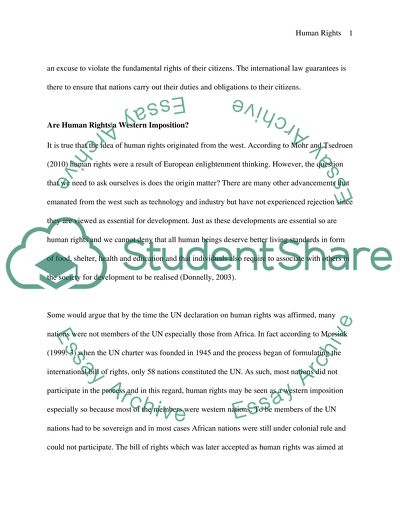Cite this document
(“Are Human Rights a Western Imposition Essay Example | Topics and Well Written Essays - 2000 words”, n.d.)
Retrieved from https://studentshare.org/history/1468039-are-human-rights-a-western-imposition
Retrieved from https://studentshare.org/history/1468039-are-human-rights-a-western-imposition
(Are Human Rights a Western Imposition Essay Example | Topics and Well Written Essays - 2000 Words)
https://studentshare.org/history/1468039-are-human-rights-a-western-imposition.
https://studentshare.org/history/1468039-are-human-rights-a-western-imposition.
“Are Human Rights a Western Imposition Essay Example | Topics and Well Written Essays - 2000 Words”, n.d. https://studentshare.org/history/1468039-are-human-rights-a-western-imposition.


